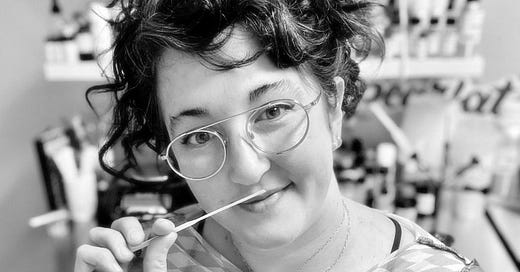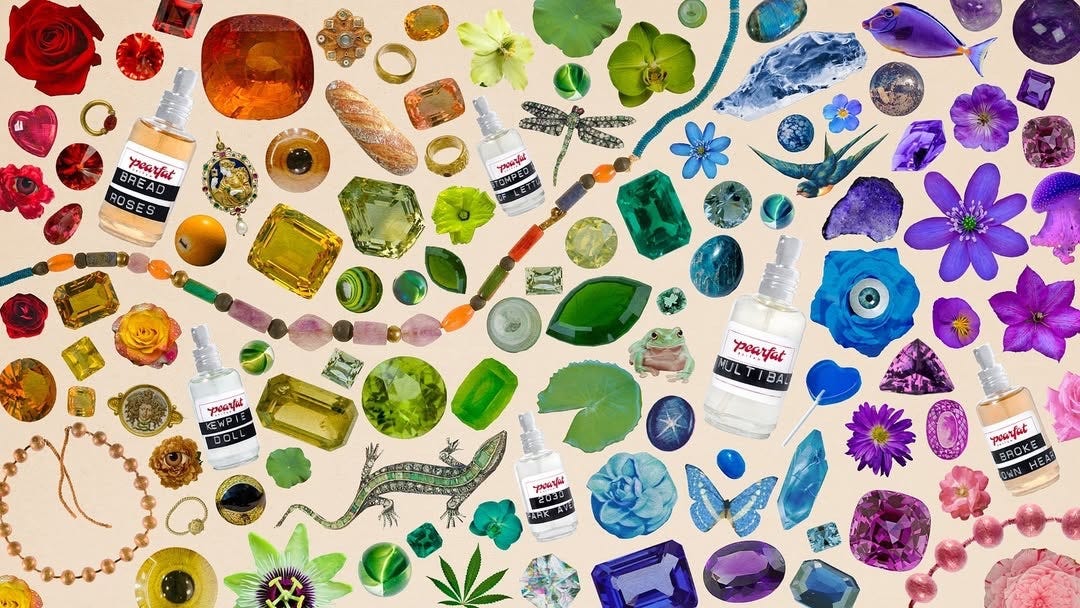
Alie Kiral’s Perfumes Smell Like Pop Culture, Nostalgia, and a Little Bit of Chaos
THE ART OF PLAY WITH PEARFAT PARFUM
This interview is part of a new Perfumeverse NYC series called Beyond the Bottle. In these interviews, we explore the notes, noses, and narratives of the fragrance world for your scented pleasure.
"Perfume feels frivolous sometimes, especially when there's so much happening in the world—but then I remind myself that joy, pleasure, and art are just as essential. We deserve both." - Alie Kiral
The indie fragrance scene has a rebellious heart, and Alie Kiral, the founder of Pearfat Parfum, embodies it with an effortless charm. There are no safe, crowd-pleasing florals or predictably sensual musks in her lineup. Instead, her brand is a surrealist playground, bottling the oddly specific emotions that haunt her brain: A Catholic childhood, lapsed but lingering (Sister Hildegard: church incense, milk, and blood orange). The sweaty, metallic thrill of a pinball machine (Multiball: spilled cola, waxy floors, sparking metal). The kind of heartbreak that lingers longer than it should (I Broke My Own Heart: hot cocoa, jasmine, teenage angst).
Meeting Kiral, you instantly sense the unique energy she infuses into her brand—nostalgic yet bold, playful yet deeply intentional. Pearfat is an extension of Kiral herself: fun, irreverent, and deeply rooted in a love for scent as pleasure.
For her, perfume isn’t about adhering to luxury or tradition. Even the name, Pearfat, is an inside joke; a play on parfait (French for “perfect”) but twisted into something unique, more Midwestern, more Kiral. This ethos is what makes Pearfat Parfum feel deeply personal, even as it pulls from niche film references, historical oddities, and bizarrely fun note combinations.
In today’s Beyond the Bottle, we sat down with Alie Kiral to explore her cinematic approach to scent, building something without a rulebook, and the art of being play in a serious industry.
Instead of building perfumes from notes up, Kiral builds them from the inside out—with a scene, a feeling, a memory that won’t leave her mind. She has what she calls “an unhinged notes app” filled with inspiration: random thoughts, overheard conversations, movies, music, and fleeting smells that refuse to let go. When one of them lingers, she starts building a story around it.
Before she was blending perfumes, Kiral studied cultural anthropology, a field obsessed with how objects hold meaning in different cultures.
”I think this is where that part of my life connects and lends itself to perfumery. I specifically researched and worked with material culture—things people decorated with, used in the home, used for fun—and I think perfume really fits into that idea in a fascinating way. Tying something material and physical to something more abstract—like the mood of a Cronenberg movie or the vibes of an Italian Christmas folk story—into a 4D experience is endlessly inspiring to me.”
Only once she’s seen the perfume—its mood, color, texture—does she start formulating. Her note pairings reflect that approach. Nothing is predictable. Nothing is easy. Stomped on Bed of Lettuce smells like a riot of rhubarb, civet, pink pepper, and saltwater. Inspired by the cult Czech film Daisies (1966), it captures the chaotic, food-fight feminism of its heroines. "Playfulness is everything—it’s a cornerstone," she says.
The Indie Perfumery Renaissance
Kiral didn’t study chemistry or go to perfume school in France. Instead, she found her way into scent through the Institute for Art and Olfaction, where she took an online experimental perfumery class at the start of the pandemic. "It blew my world open," she says. "I realized I didn’t need a legacy family connection—I just needed ideas, practice, and a willingness to experiment." One year later, she released her first fragrance, 2030 Park Avenue.
Kiral is part of a larger wave of independent perfumers redefining what it means to make scent. They didn’t come from Givaudan or Firmenich. They didn’t graduate from ISIPCA. Instead, they carved out their own paths, learning through YouTube tutorials, Basenotes forums, and hours of trial-and-error blending in bedrooms and home labs. As Highsnobiety noted in a recent deep-dive, the next generation of indie noses is here—and they’re rewriting the rules.
Early on, she connected with perfumer Michael Nordstrand of Mythologist, who became a creative sounding board and mentor. The two collaborated on I’ll Never Learn, a fragrance steeped in bittersweet nostalgia. With notes of bergamot, fog, candied violet, suede jacket, and moss, it smells like heartbreak on the back of a borrowed motorcycle jacket—a maudlin pop song cut short by memory. “When I was first starting out, Michael smelled what I was working on and told me I had cool ideas,” she says. “That validation—that I was making something worth smelling—pushed me past imposter syndrome. That meant everything to me.”
That DIY ethos extends to Pearfat’s visual identity, which feels less like a polished ad campaign and more like a cherished mixtape passed between friends. The labels are retro, the sample vials were once handwritten by Kiral herself, and the perfumes feel like deep cuts, obscure references only the right people will get.
"I think people who love Pearfat get that these aren’t everyday scents. They’re meant to be worn when the mood strikes—when you want to step into a scene, embody a feeling, or tap into a different version of yourself."
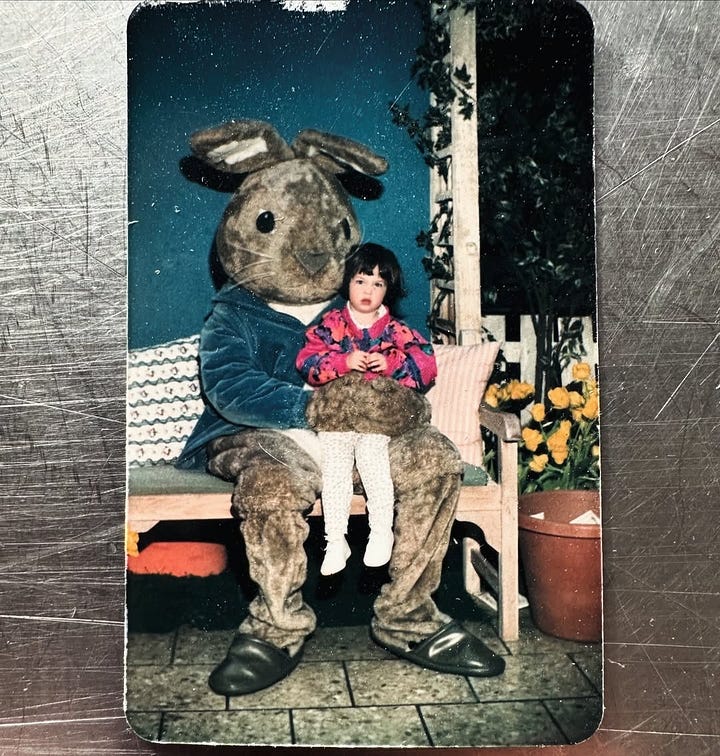
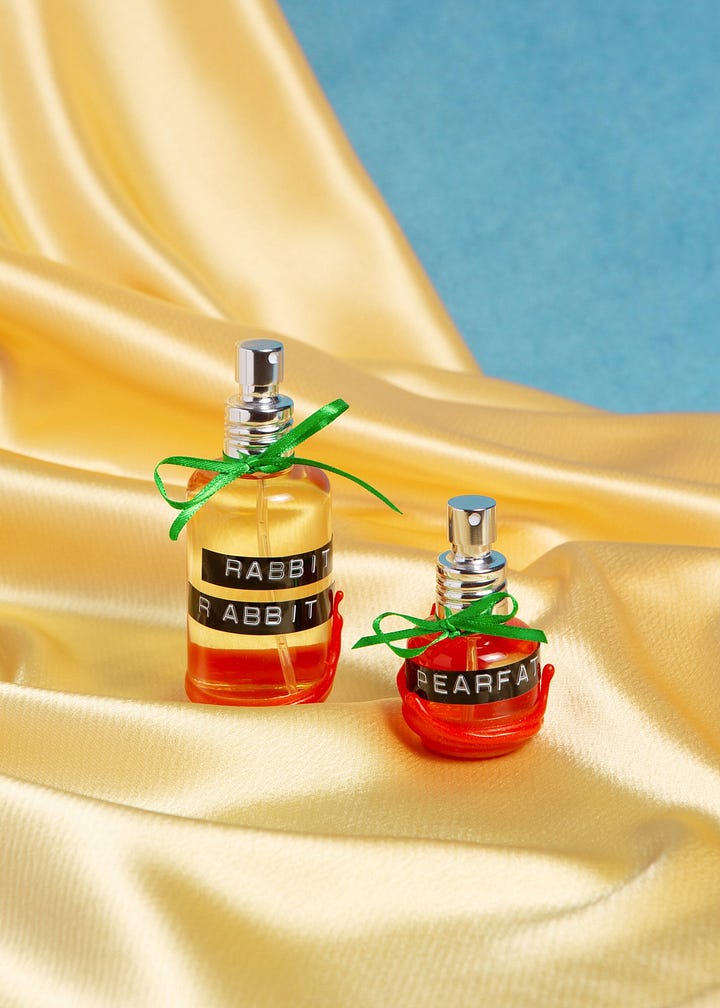
Pearfat is, in many ways, an autobiographical project made wearable. Rabbit Rabbit is built around the childhood ritual of saying "rabbit rabbit" for luck on the first of the month. Kewpie Doll distills the warmth of an Italian-American grandmother’s back porch—ripe tomatoes, sun-warmed wood, and the sticky sweetness of summer. La Befana nods to the haunted coziness of Italian winter—a softer, sweeter Italian counterpart to Krampus.
But some scents, like Bread and Roses, go beyond personal nostalgia. They carry a larger message for the zeitgeist. Inspired by the early 20th-century labor movement, it embodies the idea that people deserve more than survival—they deserve dignity, beauty, and joy.
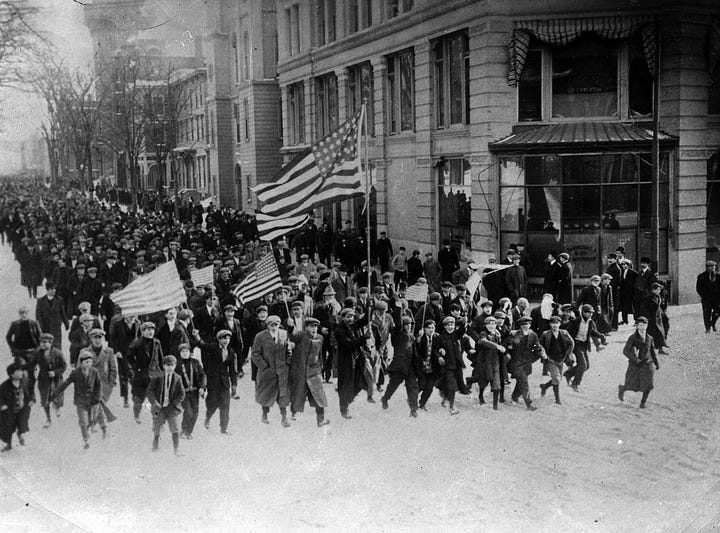
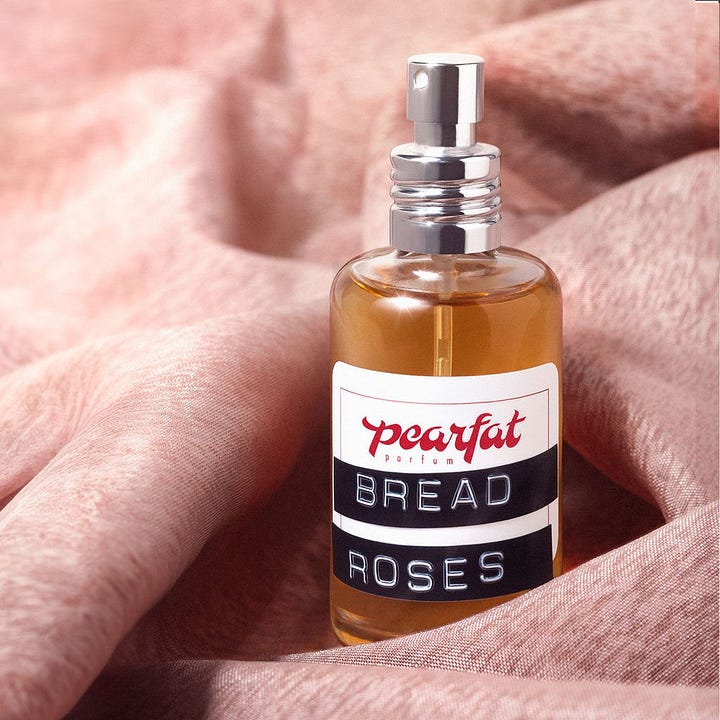
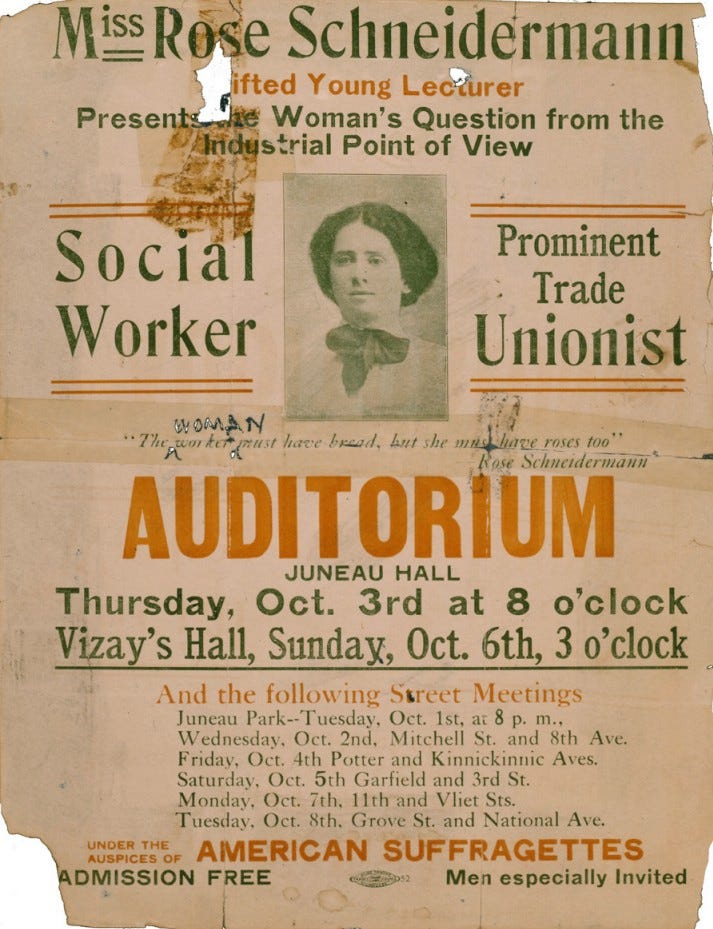
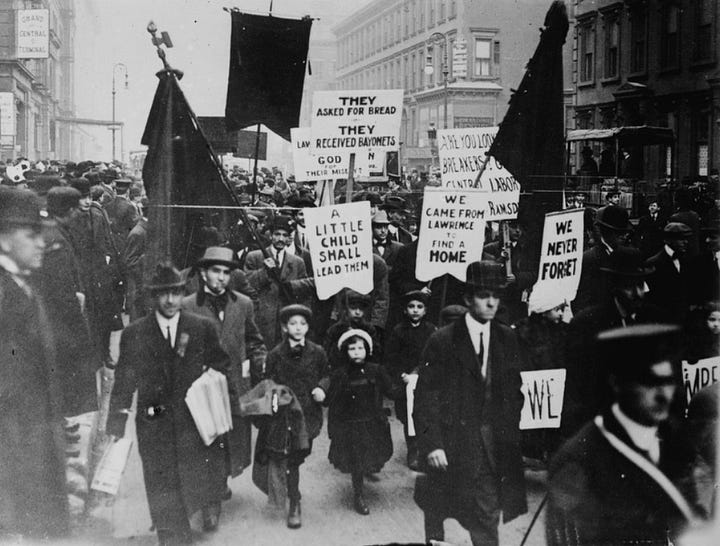
The phrase "We want bread, but we want roses, too" became a rallying cry during the 1912 Lawrence textile strike, where thousands of women fought for fair wages and humane conditions. Originally from James Oppenheim’s 1911 poem, it speaks to the need for both sustenance and a meaningful life.
For Kiral, this message resonates deeply. Bread and Roses balances that duality: warm and earthy like fresh-baked bread, yet lifted with delicate floral notes that echo the poem’s call for beauty. A portion of its proceeds goes to the Midwest Access Coalition, which helps individuals access abortion care.
The Art of Community and Collaboration
In an industry where niche brands often operate within their own silos, Kiral takes a refreshingly different approach—one rooted in collaboration over competition. From the start, she’s been open about how much she’s learned from others, and she actively pays that generosity forward. “There’s room for all of us," she says. "The best perfumes come from people being excited about scent together—bouncing ideas off each other and sharing the love of it."
Pearfat has already worked with fellow indie brands like Odette Parfum Co., proving that collaboration fuels creativity in niche perfumery.
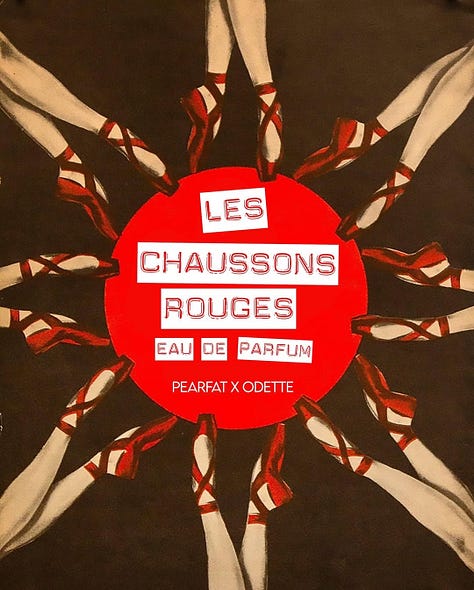
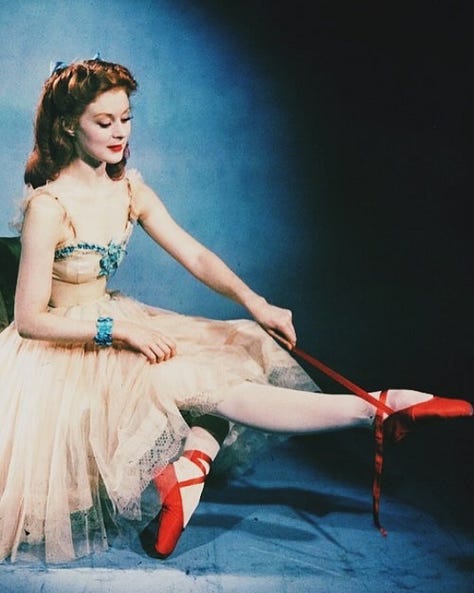
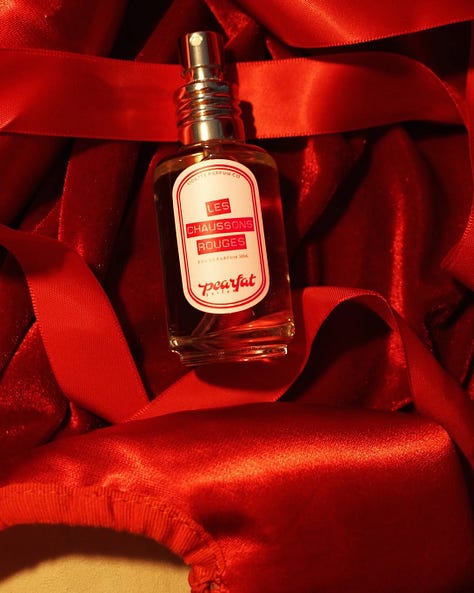
Les Chaussons Rouges is inspired by the haunting elegance of The Red Shoes (1948). With notes of saffron, oil paint, red dahlias, ginger caramel, and oud, this woody gourmand conjures the world of a prima ballerina, the scent of pointe shoes on aged theater floors, the warm decadence of spiced bread, and the bittersweet romance of a life devoted to art. (Odette’s founder recently spoke about Kiral’s influence in a Perfume Room episode).
But beyond collaborations, Kiral is committed to fostering a sense of community. She teaches fun-themed workshops, mentors new perfumers, and embraces a no-gatekeeping approach to fragrance. For Kiral, accessibility is key.
Her advice for anyone who wants to start? Start smelling. Start mixing. Start playing. She encourages curiosity, urging people to train their noses by exploring everyday scents—spices, flowers, even the air after it rains—insisting that the more you do it, the better you get. It’s this spirit of openness that makes Pearfat feel less like a brand in the ether and more like a shared creative playground. And judging by its devoted following, Pearfat’s enthusiasm for scent play is contagious.
Above all, Pearfat is about joy. “Perfume is for sweeties and lovers. Smells can be funny—smelling good is an act of pleasure. I remind myself that it's just perfume—it's not that serious. I care deeply about what I do, but I also like to have a good time while I do it.”


